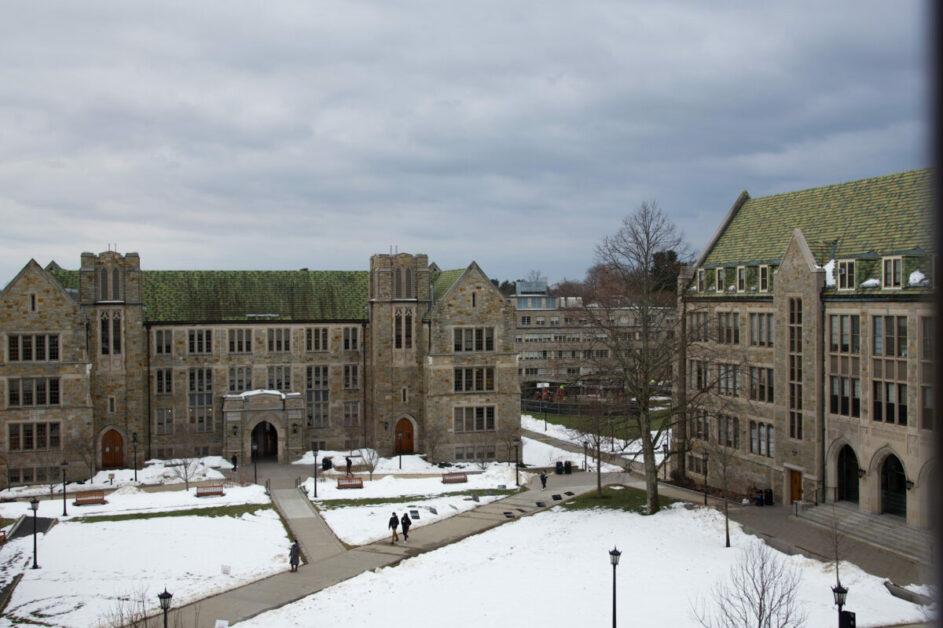“You go to the margins not to make a difference but to be made different,” he said.
Boyle, a Jesuit author and graduate of the School of Theology and Ministry (STM), spoke at the second annual Daniel J. Harrington, S.J., Lecture Thursday on Zoom to accept STM’s Alumni Distinguished Service Award.
Boyle is the founder of Homeboy Industries, the largest gang rehabilitation and re-entry program in the world, according to its website. The organization aims to aid formerly incarcerated or gang-involved men and women in Los Angeles in reimagining their futures.
“Every once in a while we get this extraordinary, exquisite privilege to be able to stand with the easily despised and the readily left out,” Boyle said. “We get to stand with the demonized so that the demonizing will stop and with the disposable so that the day will come when we stop throwing people away.”
Meghan Lovett, director of the Continuing Education program in STM, said that Boyle is receiving the award for his ability to see Christ in everyone.
“This award is given to Father Boyle in recognition of his boundless compassion, radical kinship, and extravagant tenderness [and] in recognition of his prophetic witness to the gospel message of recognizing Christ in our brothers and sisters in all circumstances,” Lovett said.
Boyle’s upcoming book, The Whole Language: The Extravagant Power of Tenderness, inspired the content of his lecture.
Boyle said an interaction with a man named Louis, who sought Homeboy Industries’ services, inspired the title of his book. Boyle recalls Louis referring to the idea of fluency as speaking “the whole language,” an idea of seeing everyone as whole that resonated with him in a spiritual sense.
“I want to talk about spiritual fluency as tenderness as the highest form of spiritual maturity,” Boyle said. “… The ability to be fluent … to see the wholeness in each other and then invite each other into our own dignity and our own nobility, our own wholeness as a community of kinship.”
Boyle also spoke about the importance of approaching others, such as those affiliated with gangs, with tenderness.
“At Homeboy Industries every gang member who walks through the door comes with what psychologists would call a disorganized attachment,” he said. “Mom was either frightened or frightening, and you can’t calm yourself down if you’ve never been soothed. So they walk through the doors barricaded behind a wall of shame and disgrace, and the only thing that can scale that wall is tenderness.”
Homeboy Industries is a safe space for these “homies,” Boyle said.
“Homeboy becomes something as a sanctuary and then the homies become the sanctuary that they sought, and then they go home to their kids and they present the sanctuary, and suddenly you have broken a cycle,” he said.
Boyle said that people will begin to cherish others if they are cherished themselves.
“If it’s true that a traumatized person is more likely to find their way to traumatizing others, it’s equally true that a cherished person will be able to find their way to the joy there is in cherishing themselves and others,” he said.
Boyle also acknowledged how the COVID-19 pandemic has impacted gang members and the presence of gang violence. He said that gang violence is “about a lethal absence of hope,” and that the pandemic has exacerbated feelings of hopelessness.
“It really keeps them from imagining tomorrow,” he said.
Boyle advocated for adopting an attitude of inclusion, nonviolence, and unconditional love when interacting with those on the margins.
“Stop trying to reach them,” Boyle said. “Can you be reached by them? To be reached by people and to receive them, it’s eternally replenishing.”
Featured Image by Nicole Vagra / For The Heights







